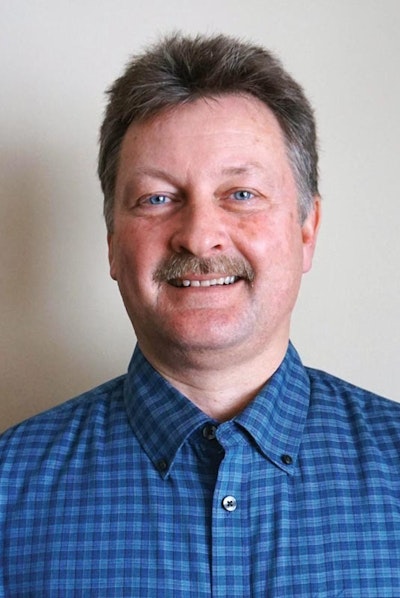Interested in Education/Training?
Get Education/Training articles, news and videos right in your inbox! Sign up now.
Education/Training + Get AlertsAfter more than two years of work, onsite wastewater professionals in Michigan have a new law dealing with septage disposal. The law was signed by Gov. Rick Snyder in January and continues an exemption so haulers with certain storage tanks can continue to land-apply septage rather than having to use a local municipal treatment plant.
More changes are possible with an effort underway to pass statewide onsite wastewater rules. Joe Hall, president of the Michigan Septic Tank Association (MSTA), is one of those keeping an eye on proposals. Another is Ron Lindsay, vice president of the Michigan Onsite Wastewater Recycling Association (MOWRA).
The 65-year-old MSTA has about 240 members, mostly pumpers with some installers, portable restroom companies, vendors and equipment manufacturers. MOWRA started in 1995 and consists of installers, designers, service providers, inspectors, academics and regulators. In a given year, membership will range between 30 and 75, depending on the current hot issue affecting the industry, according to Lindsay.
How does the new septage law help the industry?
Hall: It will take away a deadline for those who have a storage facility of 50,000 gallons or more and operate in a service area for a septage receiving facility. If that storage tank was erected or authorized before the service territory was created (a requirement for new receiving facilities), you do not have to take your septage to that facility and can continue to land-apply. The exemption had a sunset provision in 2025, so the bill takes away that sunset and allows land application to continue. (Current law also requires local governments that ban land application to offer a septage receiving station.)
The second half of the bill allows pumpers to take septage to a receiving facility in any service area in which they operate. There was a loophole in the law that allowed receiving facilities to require septage in their service area to be disposed of only at their facility.
To get the bill passed, we agreed to an amendment to allow mandatory disposal for existing plants until their debt is paid off. Grand Traverse County has an ordinance that any septage pumped in that county has to go to their facility. When they first built it, they had some construction problems, a holding tank wall collapsed, and they had to rebuild it. The disposal cost was 12 cents a gallon when they opened and has gone up to 18 cents. Jackson County has a similar ordinance and their cost is
21 cents.
There has also been talk of a new statewide sanitary code. Is that making any progress?
Hall: That should be coming up and hopefully passed this year. Some committees have formed and it’s being talked about. Every local health district has its own sanitary code; there is no statewide code for them to follow. Installers are concerned because they have a different set of rules from county to county (and) that makes it confusing.
Lindsay: There has been talk for a number of years and it keeps getting stalled. It’s a big initiative for this year. There’s a lot of politics and various stakeholder groups involved. I think we do have a little bit better chance this time around. MOWRA is providing technical information. There is a need for uniformity as designers and installers work across county lines. Secondly, there is a big need for maintenance requirements for onsite systems
in Michigan.
What do your groups provide in the way of training?
Hall: Our biggest thing is education. Our annual wastewater conference in January offers continuing education credits toward the 30 needed for your pumper license renewal every five years. The conference is sponsored by our groups, along with the Michigan Department of Environmental Quality, the Department of Ecosystems and Agricultural Engineering, Michigan Water Environment Association, and Michigan Environmental Health Association.
Lindsay: The annual conference is MOWRA’s biggest initiative. This last one was the 64th. We had about 500 attendees; about 120 regulators, 200 pumpers, 80 installers, 40 vendors and a mix of service providers, time-of-sale inspectors and system designers. Unlike the pumpers, the rest of the onsite wastewater professionals don’t have requirements for certification and continuing education. We would like to see that as part of the bill for the statewide standards.
Some of our members serve with the Michigan State University Extension providing onsite wastewater training for onsite professionals. They just started that last year, primarily over the winter months at about a half dozen locations across the state. They also provide educational workshops for homeowners and other users of onsite systems.
Once or twice a year, MOWRA hosts educational field trips to various decentralized wastewater treatment/collection sites. Onsite professionals can learn about various advanced treatment systems firsthand by asking questions of the professionals that were involved with the project.
MOWRA will also help fund public service announcements by the Extension to help the public understand the importance of wastewater management and the need for a statewide code. That is just getting underway.
Is there any other legislation you are following?
Hall: House Bill 5939 was introduced last November by the Farm Bureau Association. MSTA opposes this bill that would allow farmers to service their own portable restrooms without having to obtain a Michigan Septage Haulers License. We’re opposed because it would be more competition for haulers, and if we have to be licensed and go through all the education, farmers should have to do the same thing.
The bill didn’t go anywhere in the last session and will have to be reintroduced. We’ve been in contact with the DEQ and the Farm Bureau and are going to set up some meetings to hash things out a little and hopefully get everybody on the same page.
We heard about the bill from DEQ. They wanted to know our opinion. I think there’s probably some room for negotiation, but we definitely want them to get a license. Hopefully we can come up with something that is agreeable to everybody.
What does the future hold for the onsite industry?
Lindsay: With the economy, we’re one of the first ones to slow down and one of the last to recover. During the last five years there has been a reduction in the number of onsite firms, and many of those that are still around downsized significantly. This past year has been tremendous for installers and designers. Most have been overwhelmed with the workload. People are kind of standing on the fence right now. Is this a trend that is going to continue or is it just pent-up demand? Talking to some of the health departments recently, they see the next year to be very strong. They’re seeing a lot of activity as far as soil evaluations and so forth right now, so they anticipate an increase in work.







